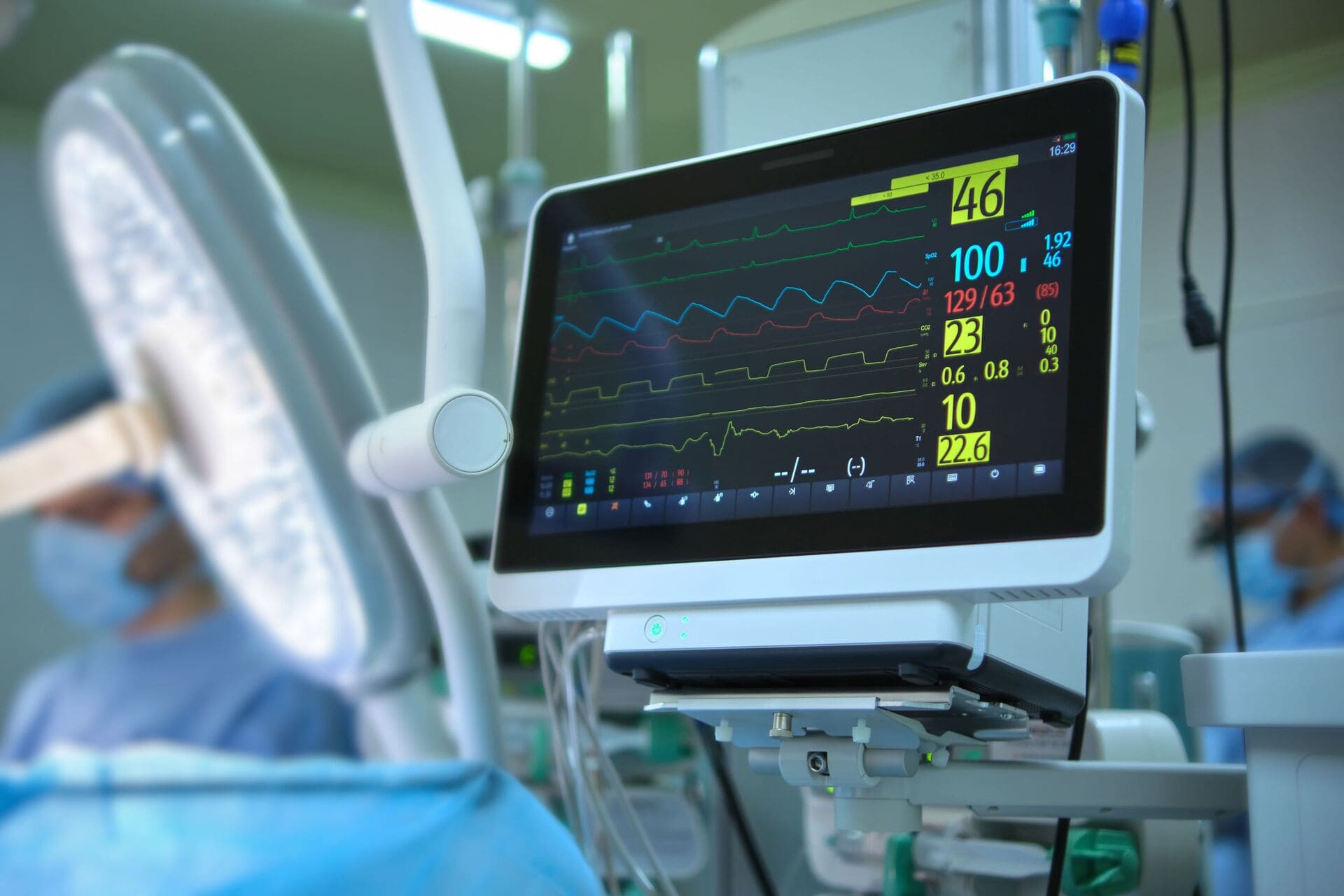In an era where technology has infiltrated every corner of our lives, testing plays a key role in safeguarding the integrity and functionality of technological innovations. As we increasingly depend on digital solutions for everyday tasks, QA becomes indispensable, especially in certain fields. Some industries, due to their operational complexities and the severe consequences of potential failures, place an even greater emphasis on QA to ensure their systems and services meet the highest standards of reliability and efficiency.
In these industries, the margin for error is virtually nonexistent. Let’s explore some of the sectors that depend critically on QA for their day-to-day success and performance.

Healthcare
In the healthcare industry, QA ensures that software applications and systems used across various aspects of patient care and administrative processes meet the highest standards. The stakes in healthcare are exceptionally high, as software failures can directly affect a patient’s well-being, breach data privacy, and lead to significant legal and financial consequences.
QA in healthcare deals with a very broad range of apps, from electronic health records, patient management systems, telehealth services, mobile health apps, to various software used by diagnostic tools and other medical devices (such as pacemakers, CT scanners, ventilators, or MRI machines).
Given the possible tragic consequences of poor software quality, these systems must be rigorously tested to ensure they are functional, safe, as well as user-friendly for healthcare professionals. They should also maintain the integrity and confidentiality of personal data, and demonstrate interoperability with other healthcare systems to provide seamless care.
Performance and reliability testing are crucial in a healthcare setting as well. Systems must be able to operate efficiently under high loads, such as during epidemic outbreaks or other health crises. Finally, meticulous testing is necessary in the health insurance domain as well, to help protect sensitive patient data, comply with regulatory standards, prevent fraud, and minimize the risk of errors in processing claims and calculating premiums.
Banking and financial services
Thanks to the accelerating digitalization of financial services, the value of software testing in this sector has increased dramatically. This industry handles sensitive personal and financial data, executes millions of transactions daily, and is highly regulated, making solid QA practices essential to maintain trust, comply with legal mandates, and ensure operational excellence.
Security is a major concern in this industry. QA teams conduct thorough security testing, including vulnerability assessments and penetration testing, to identify and mitigate potential breaches that could lead to data theft or financial fraud. Compliance testing is equally critical, as financial institutions must adhere to a complex web of regulations that dictate standards for data protection, privacy, and financial reporting.
Furthermore, functional testing is vital in finance and banking because it ensures that all features and operations of financial software systems work as intended. In an industry where precision and reliability are non-negotiable, QA verifies that transactions are processed correctly, data is accurately recorded, and all user interactions lead to the expected outcomes.
Given the complexity of financial software and its integration with other systems, functional testing helps identify discrepancies and potential errors before they impact end-users. It’s crucial for maintaining customer trust, as even minor errors can lead to painful downtime, significant financial loss, and a decline in customer confidence.

Automotive
In the automotive industry, software testing is becoming increasingly significant due to the widespread integration of software into vehicle systems. Modern vehicles are no longer just mechanical machines but sophisticated systems that incorporate extensive driving assistance capabilities, instrumentation for detailed monitoring, as well as all sorts of advanced software for navigation, entertainment, safety, and much more.
Testing these systems involves a combination of simulation, lab environments, and real-world field testing to ensure software not only meets functional requirements but can also handle real-life situations and unexpected scenarios without failure.
QA in automotive is thus a multifaceted discipline that ensures vehicles are not only enjoyable and convenient to use but, more importantly, safe and secure. Software errors in automotive applications can have catastrophic effects, including the risk of accidents and death. Therefore, automotive QA places a strong emphasis on safety-critical testing and ensuring compliance with various regulatory and industry-specific requirements. And as the development of autonomous cars gains momentum, the need for testing in the automotive industry is set to escalate even further.

Telecommunications
This industry is the backbone of global digital communication. QA processes in telecommunications focus on optimizing network performance, guaranteeing high-quality service delivery, and protecting user data against increasing cybersecurity threats.
Telecommunications systems require extensive testing across various domains, including network reliability under high traffic, service quality for voice, image and data transmission, usability of customer-facing apps, as well as interoperability among diverse devices and protocols. This ensures that consumers experience consistent, high-quality communication services, whether they’re making a call, streaming video content, or browsing the internet.
As telecommunications networks evolve with new technologies like 5G and IoT, QA plays an integral role in facilitating these advancements, ensuring they meet the industry’s rigorous standards for performance and security. The ultimate goal is to help build the telecommunications infrastructure of the highest quality, in order to deliver seamless, uninterrupted service that meets the demands of today’s digital world.
Defense/Aerospace
Defense and aerospace have similar technological foundations – they both strongly focus on systems responsible for navigation, communication, surveillance, and security. They also have a lot of regulatory overlaps, and the aviation sector has always been a great arena for developing and repurposing military technologies, so that’s why it makes sense to look into these two industries together.
Another overlap between the two is that meticulous testing is critical for both, due to the extreme circumstances under which software must operate reliably and the grave consequences of potential failures. The absolute imperative of safety and operability in aerospace and defense demands exhaustive testing protocols.
QA practices ensure that every piece of software, from onboard systems guiding commercial airliners to the software controlling unmanned aerial vehicles in military applications, performs flawlessly under all anticipated conditions. Finally, the complexity of systems in aerospace and defense, often integrating hardware and software from multiple suppliers and with very different underlying technologies, further complicates QA processes. Thus, comprehensive system integration testing is even more important than in most other domains.

Retail
In the retail industry, testing is crucial for ensuring that both the in-store and online shopping experiences meet the high expectations of consumers. With the speedy expansion of e-commerce and the growing use of digital technologies in physical stores, QA is crucial for success in this industry.
Just like other industries on this list, retail requires a wide spectrum of testing activities to maintain operational excellence, enhance customer satisfaction, and secure consumer data. Security testing is critical because of the vast amounts of personal and financial data used by retailers. Performance testing is also essential to ensure that the e-shop can handle high traffic volumes, particularly during peak shopping seasons or sales events. Slow-loading pages or downtime can lead to lost sales and damage to the brand’s reputation.
Functional testing is no less important in this sector. It evaluates all aspects of the shopping experience, from product search and selection to checkout and payment processing. This includes (but is not limited to) verifying that inventory management systems are accurate, pricing is correct, or promotions are applied as intended.
Finally, mobile responsiveness testing ensures the e-commerce site or app offers a consistent experience across devices, which is vital as an increasing number of consumers shop on their smartphones. Overall, QA in e-commerce is about more than just preventing technical glitches; it’s about creating a positive, engaging shopping experience that builds customer loyalty and drives business success.



